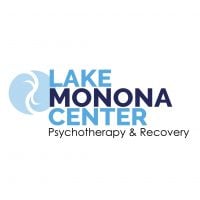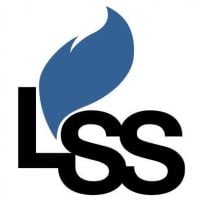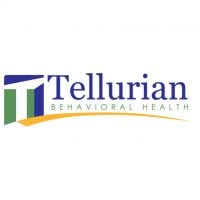
Lake Monona Psychotherapy & Recovery Center
Drug Rehab Center in Madison, Wisconsin
- Opioid Addiction
- Dual Diagnosis
- Drug Addiction
- Alcoholism
Lake Monona Psychotherapy & Recovery Center provides evidence-based, compassionate, and specialized treatment for addiction and mental health issues, including traditional psychotherapy and holistic treatments, to help clients achieve holistic wellness and improve mental health in Madison, WI.
About This Wisconsin Facility
Lake Monona Psychotherapy & Recovery Center, located in Madison, Wisconsin, is a treatment facility dedicated to helping individuals struggling with alcoholism, opioid addiction, dual diagnosis, and drug addiction. As a trusted resource for those seeking sobriety, Lake Monona Psychotherapy & Recovery Center offers a range of services and levels of care. Their aftercare support program provides ongoing support and guidance after completing treatment, ensuring a smooth transition into everyday life. With a focus on outpatient levels of care, Lake Monona Psychotherapy & Recovery Center offers flexible treatment options that allow individuals to receive the help they need while still maintaining their daily responsibilities.
Lake Monona Psychotherapy & Recovery Center utilizes various treatment methods to address addiction and substance abuse. Their drug rehab services are tailored to meet the unique needs of each individual, with a focus on personalized care and evidence-based approaches. By offering dual diagnosis treatment, Lake Monona Psychotherapy & Recovery Center acknowledges the complex nature of addiction and its connection to mental health. Through therapy and counseling, individuals are provided with the necessary tools and support to navigate through their recovery journey. With a commitment to professional and compassionate care, Lake Monona Psychotherapy & Recovery Center is dedicated to helping individuals achieve and maintain sobriety.
Genders
Ages
Modality
Additional
Conditions and Issues Treated
Opioid addiction is the result of repeated use, or abuse, of opioid drugs. It is recommended for people who are dependent on opioids, or who have a high risk for dangerous health concerns, to seek professional treatment. Treatment plans usually include behavioral therapy and medication-assisted treatment.
Opioid drugs include: fentanyl, heroin, methadone, oxycodone, and oxymorphone.
Opioid addiction treatment is beneficial for:
- People who have a history of severe withdrawal.
- People with a high risk for dangerous health concerns.
- People having difficulty overcoming opioid addiction on their own.
There are different kinds of Dual Diagnosis:. A person who simultaneously experiences both a mental illness and an addiction disorder. Or, a person who experiences one or more coexisting (simultaneous) mental health conditions in addition to a primary substance use disorder.
The treatment requires a multi-disciplinary approach, it’s crucial for individuals to partner up with a healthcare provider who understands all the recovery components.
Levels of Care Offered at Lake Monona Psychotherapy & Recovery Center
This center offers a variety of custom treatment tailored to individual recovery. Currently available are Aftercare Support, Drug Rehab, Dual-Diagnosis, Outpatient, with additional therapies available as listed below.
The outpatient programs in Madison, WI are for those addicted drugs or alcohol. The goal of the outpatient rehabilitation program is to make them stop abusing drugs or alcohol, reduce drug use or addictive behaviors, and become entirely sober. It is generally required to attend the outpatient program for 10-12 hours every week.
Patients can be administered on-the-spot medication to ease withdrawal symptoms such as anxiety, increased heart rate, and even depression. Groups such as Alcoholics Anonymous (AA) and Narcotics Anonymous (NA) can be used as a part of outpatient treatment to help maintain sobriety.
Aftercare support is a service many addicts need to ensure their success at recovery. This service usually includes one-on-one or group therapies, assistance from a sponsor and other types of help designed to make sure the patient continues living a life free from drugs.
Patients also may require medication to help them battle addiction. Some people have been able to successfully recover without additional medications, but others have found that they need help during their transition. Long-term, the patient must take the initiative to attend meetings and receive help from other addicts in recovery.
Therapies & Programs
People in addiction recovery can benefit from individual therapy. This type of therapy involves meeting with a therapist one-on-one. This allows for a personal and trusting relationship to be built so that the patient can be truly themselves and express any emotions they feel. Individual therapy leads to greater understanding and peace about your triggers for addiction and coping strategies to prevent relapse.
Couples therapy for drug addiction is based on the belief that addiction is a family disease. Everyone involved with an addict, not just the addict themselves, is affected by their behavior and the changes the addict goes through. The relationship also changes the addict’s significant other and has likely picked up some codependent behaviors. Codependency is a term used to describe a person obsessed with another person and their needs and feelings while neglecting their own. Addicts are usually people-pleasers, so it is understandable how one can become codependent in relationships with addicts.
Family therapy is a type of group problem-solving that aims to improve communication and relationships between the patient, their family, and sometimes friends. The main goal of family therapy for drug addiction is to create an environment where communication can occur without judgment, hostility, or blame. The therapist is with the family as they learn to communicate with each other differently, especially with the addict when s/he is using.
Group therapy sessions are held in rehab facilities, clinics, churches or community centers that offer drug addiction treatment. People who attend these groups are encouraged to voice their feelings and support other addicts in recovery. This helps group members strengthen their own recovery program while cheering on others who are struggling with sobriety.
Group therapy sessions provide recovering addicts with a chance to cope with everyday situations that many face. Group therapy sessions are held in rehab facilities, clinics, churches or community centers that offer drug addiction treatment.
People who attend these groups are encouraged to voice their feelings and support other addicts in recovery. This helps group members strengthen their own recovery program while cheering on others who are struggling with sobriety.
If you’re looking for addiction treatment, it’s important to find a facility that offers trauma therapy. This type of therapy helps people process and understand the past traumas that have led to their addiction. Trauma therapists will work with clients to help them understand their past and present relationships and show them that they are worthy of love. This therapy is typically done using visualization, discussion, and writing down thoughts and feelings.
Trauma Therapy is a form of therapy that involves working with a patient to help them process and understand the past trauma(s) in their life. This therapy is typically done using techniques such as visualization, discussion, and writing down thoughts and feelings. The main goals of trauma therapy is to help clients express their emotions and talk about what they are feeling.
Additional Details
Specifics, location, and helpful extra information.
Madison, Wisconsin 53713 Phone Number(608) 256-5030 Meta DetailsUpdated November 25, 2023
Staff Verified
Patient Reviews
There are no reviews yet. Be the first one to write one.
Madison, Wisconsin Addiction Information
Wisconsin has some of the highest rates in the United States for both adolescent and adult substance abuse. Since 2009, the state has been experiencing the same escalating rates of drug abuse and addiction as the rest of the country. The major concerns are the misuse of prescription painkillers and the escalating number of deaths due to alcohol-related liver disease.
Madison, Wisconsin is struggling with an opioid crisis. In 2017, there were 234 drug overdoses in Madison. 1 in 5 residents knows someone who has died from a drug overdose. 8.3% of Madison residents report heavy drinking. This area ranks 4th among Wisconsin cities for drug use disorders. The centers in Madison offer a variety of services, including individual and group counseling, medication-assisted treatment, and detoxification.
Treatment in Nearby Cities
- Delavan, WI (46.6 mi.)
- Two Rivers, WI (118.4 mi.)
- Sussex, WI (58.3 mi.)
- Darlington, WI (45.4 mi.)
- Waukesha, WI (57.6 mi.)
Centers near Lake Monona Psychotherapy & Recovery Center



The facility name, logo and brand are the property and registered trademarks of Lake Monona Psychotherapy & Recovery Center, and are being used for identification and informational purposes only. Use of these names, logos and brands shall not imply endorsement. RehabNow.org is not affiliated with or sponsored by Lake Monona Psychotherapy & Recovery Center.

